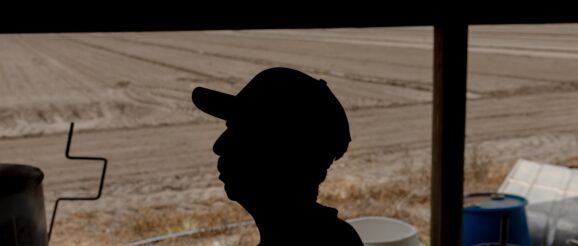Some Florida farmers reduce crops as deportation fears drive workers away

He’s been farming this land since the 1980s, but “things changed, almost overnight,” he laments.
President Trump’s immigration policies, including mass detentions and deportations, have dealt him a crippling blow, he says.
“The government is killing farming,” he says. “This is going to end us.”

“You just never know where agents are,” F. says, lowering his voice, even though no one is around. And as a farmer, that has meant having to reduce his workforce by nearly half.
“A lot of the migrants have left,” he says. “The rest are hiding.”

But he says he can’t afford to hire more H2A visa workers — the costs have been going up for years. “I’m drastically cutting down production next year,” he says, “to 35% of what I usually do.”
Economists have warned that Trump’s ongoing deportation campaign will hurt the U.S. economy, especially sectors that rely on migrant labor. Just in the last four months, agricultural employment has fallen by 155,000 workers, the biggest dip in nearly a decade.
Earlier this year, President Trump himself voiced the need for flexibility on immigrants working in agriculture. “Our farmers are being hurt badly,” he said at a news conference in mid-June. “They have very good workers, they’ve worked for them for 20 years. They’re not citizens, but they’ve turned out to be great. We can’t take farmers and take all their people.”

That was more than two months ago. As yet, there’s been no policy shift. In fact, since then, members of his Cabinet have consistently pushed for a hard line. “The president has been unequivocal that there will be no amnesty,” asserted Agriculture Secretary Brooke Rollins in early July. “Ultimately, the answer to this is automation. And then also when you think about it, there are 34 million able-bodied adults in our Medicaid program. There are plenty of workers in America,” Rollins said.
Boatright says there needs to be an urgent fix to the H2A visa system. The Farm Bureau would also like to see a pathway to legalization for farmworkers here illegally.
That’s something many in Florida’s agricultural sector support.
“I think the American consumer ought to be concerned about food being a national security issue,” says Jeb Smith, president of the Florida Farm Bureau Federation. “Anytime that there is a threat to not getting a safe, affordable and abundant food supply, it should be concerning to the American public. We do not want to be dependent on foreign countries for our food. That could be a very devastating reality. That is a dangerous thing to dabble with.”

Farther west, deeper into Central Florida’s agricultural area, Trump flags sit still in the humid heat, and mailboxes adorned with MAGA stickers stick out on the rural roadways.

Lowering his voice almost to a whisper, he says that on immigration, Gov. DeSantis and President Trump “might be riding them a little bit hard.”
